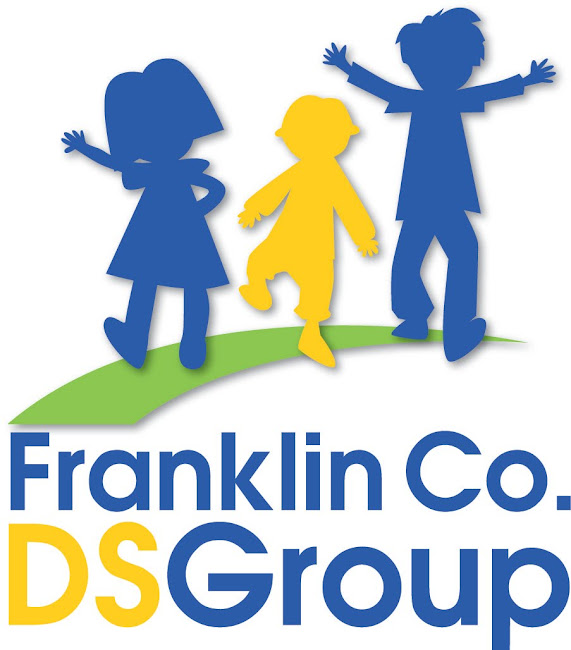Act Now to Help Increase Funding for Down Syndrome Research Dear DSAGSL Members and Friends, The DSAGSL is joining with the National Down Syndrome Congress and the Global Down Syndrome Foundation (GDSF) to strongly encourage you to take action now to help increase funding for DS research. The National Institutes for Health has issued a Request for Information regarding a national Down syndrome registry, research database and biobank. Every e-mail counts! A large, clear response is likely to lead to funding for these important projects. The deadline to respond is April 1st! What can I do?
What if I need additional information?
Tuesday, March 29, 12:00pm MST Wednesday, March 30, 5:00pm MST Sample Letter/Key Points Below is a sample letter of support, and below that some key points to consider: To Whom It May Concern: It is morally, economically and scientifically important that the National Institutes of Health increase funding for people with Down syndrome. We are pleased that the Linda Crnic Institute for Down Syndrome and the Global Down Syndrome Foundation have taken the lead with the NIH in this regard. We support and agree with the Linda Crnic Institute's assessment of what the parameters should be for our future centralized Down syndrome patient registry, database and biobank. Please continue to work towards this end. We appreciate NIH's renewed interest in Down syndrome research and we appreciate NIH addressing the historical and alarming disparity of funding for research that would improve the lives of people with Down syndrome. Sincerely, (name) Key points to consider (provided by the Global Down Syndrome Foundation): · People with Down syndrome deserve
· Without research
· Examples to consider
Our Down syndrome community needs a national, centralized registry, research database and biobank in order to
· Ownership
A Research Review board will
|
Wednesday, March 30, 2011
YOUR HELP IS NEEDED!
Thursday, March 24, 2011
FREE PODCAST FROM THE NACD!
The National Association for Child Development - Download free podcast episodes by NACD - The Nation
I was able to listen in on this last night and there was so much great information!
I would recommend listening to the free podcast. I am going to listen again and take better notes.
Thank you Ria!
STEP UP FOR DOWN SYNDROME ~ SUNDAY JUNE 5th!!!
Friday, March 18, 2011
LOSE THE TRAINING WHEELS!
Space is Limited and Moving Fast Lose the Training Wheels™ Bike Camp June 6-10, 2011 Deer Creek Center 3238 Laclede Station Road St. Louis, MO 63143 The Down Syndrome Association of Greater St. Louis and Pujols Family Foundation are teaming up again to bring Lose the Training Wheels to St. Louis. The mission of Lose the Training Wheels™ is to teach individuals with disabilities to ride a conventional two wheel bicycle and become lifelong independent riders. This achievement, in turn, creates a gateway of opportunity, helping them gain assurance and self-reliance in many other aspects of their lives. For more information, visit our website or click here for an application form. The bike camp fee is $150 per rider and there are only 40 participant slots. If you are interested, send your application to the DSAGSL office today. To learn more about Lose the Training Wheels program, please visit www.losethetrainingwheels.org/. |
Monday, March 7, 2011
GATEWAY CENTER for the ARTS NEEDS OUR HELP!
204 Elm Street Washington MO
636-239-8939
You have probably heard that the Gateway Center for the Arts building was
damaged during Sunday's storm. You may not have heard how extensive the damage
was. Part of the roof blew off in the storm, letting rainwater inside. Gym
mats & pieces of equipment are ruined, the walls where the water ran down are
soaked, and the floors are damaged from standing water.
Gateway serves our community in a very unique way, offering dance, tumbling,
art, etc, as well as much-needed special needs classes. It is a place where
typically developing and challenged kids alike can find things they love and
help them grow. So many special needs families in particular count on
Gateway's support to help their children flourish.
damaged during Sunday's storm. You may not have heard how extensive the damage
was. Part of the roof blew off in the storm, letting rainwater inside. Gym
mats & pieces of equipment are ruined, the walls where the water ran down are
soaked, and the floors are damaged from standing water.
Gateway serves our community in a very unique way, offering dance, tumbling,
art, etc, as well as much-needed special needs classes. It is a place where
typically developing and challenged kids alike can find things they love and
help them grow. So many special needs families in particular count on
Gateway's support to help their children flourish.
Volunteer times:
Wed March 9th 12pm-4pm
Thurs March 10th 9am-11am & 12pm-4pm
Friday March 11th 9am-3pm
http://www.gatewaycenterarts.org/
If you are not able to stay all day then just stay for an hour or so!
Any help is appreciated!!!
(Thank you Ria & Kristin!)
Subscribe to:
Posts (Atom)



